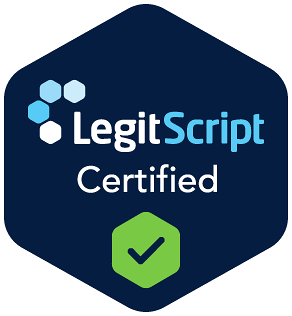When your teen is struggling with substance use, it can feel overwhelming and isolating. You may be unsure what’s normal experimentation and what’s a sign of something more serious. At the Massachusetts Center for Adolescent Wellness (MCAW), we’re here to help families on the North Shore and South Shore find hope, healing, and professional support.
One key benefit of seeking professional teen addiction treatment is the opportunity for improved health, stronger relationships, and better future opportunities for your child.
Our teen substance abuse treatment program provides compassionate, evidence-based care designed specifically for the adolescent age group, focusing on age-appropriate support for teens ages 12–17. We help teens understand why they turn to drugs or alcohol, teach them healthier coping skills, and guide them toward lasting recovery.
Understanding Teen Substance Abuse
Substance abuse happens when a young person repeatedly uses drugs, alcohol, or other substances despite harmful consequences. For teens, the risk is higher because their brains are still developing—especially the parts that manage decision-making and impulse control. Children and young people are particularly vulnerable to substance use and addiction, and often require specialized treatment approaches tailored to their developmental needs.
Commonly misused drugs among adolescents include:
- Alcohol and nicotine (including vaping)
- Marijuana
- Prescription painkillers and stimulants
- Synthetic marijuana or “spice”
- Inhalants and over-the-counter medications
Recognizing the symptoms of drug abuse in young people is crucial. Early identification of symptoms such as changes in behavior, mood swings, declining academic performance, or withdrawal from family and friends can help parents and guardians intervene before the problem escalates.
Even occasional use can lead to long-term problems with learning, memory, emotional regulation, and relationships. Early intervention is key to preventing drug abuse and supporting healthy development in young people.
Signs Your Teen May Need Addiction Treatment
Many parents wonder when to step in. It’s normal for teens to test limits, but certain patterns and symptoms suggest a deeper issue. Recognizing the symptoms of substance use and drug abuse in teens is crucial for early intervention and effective support.
Behavioral and emotional changes:
- Increased secrecy, irritability, or sudden mood swings
- Breaking rules, lying, or isolating from family
Academic or social changes:
- Drop in grades or attendance
- Losing interest in school, sports, or hobbies
- Spending time with new peers known for risky behaviors
Physical or health signs:
- Bloodshot eyes or frequent nosebleeds
- Unexplained weight changes or fatigue
- Smells of smoke or other substances on clothes
If these behaviors and symptoms sound familiar, consider seeking professional help for teens struggling with substance use. Treatment isn’t punishment—it’s support, structure, and a second chance.
Adolescent Substance Abuse Treatment Options

Every teen’s journey is different. MCAW offers multiple levels of care so we can meet your child where they are in their recovery process.
Outpatient Programs for Teens
Our outpatient program allows teens to live at home while attending therapy sessions several times a week. This is best suited for mild substance use issues and strong family support.
Sessions may include:
- Individual therapy
- Group therapy
- Family sessions
- Medication management, if needed
Afterschool Intensive Outpatient Program (IOP)
Our Afterschool Intensive Outpatient Program (IOP) provides a higher level of structure and support for teens who need more frequent therapy. Teens attend sessions several times per week, typically for 2–4 hours at a time.
IOPs are ideal for:
- Teens needing more accountability
- Families balancing treatment with school attendance
- Adolescents stepping down from day treatment
Day Treatment (Partial Hospitalization Program – PHP)
For teens who need more intensive care, our Partial Hospitalization Program (PHP) offers full-day treatment in a structured, supportive environment. Teens participate in therapy, skill-building activities, and academic support for 5–6 hours per day, five days a week.
This level of care provides the stability and consistency many teens need to begin recovery while allowing them to return home each evening.
Residential Treatment Centers (External Referrals)
While MCAW specializes in outpatient and day programs, we help families connect with trusted residential treatment centers in Massachusetts for teens who need 24-hour supervision. Our clinical team collaborates with these programs to ensure a smooth transition and continuity of care.
Evidence-Based Therapies That Work for Teens with Substance Use Disorders

At MCAW, we use evidence-based treatment and psychotherapy as core components of our program, ensuring that youth receive care supported by scientific research and proven to be effective. Our approach addresses co-occurring disorders in youth through integrated, family-involved care that combines mental health and substance use interventions. These evidence-based interventions lead to positive outcomes, helping youth achieve lasting improvements in behavior and mental health.
Cognitive Behavioral Therapy (CBT)
CBT helps teens understand how their thoughts influence their feelings and actions. Together, they learn to challenge negative thinking and develop healthier coping skills for stress, cravings, and peer pressure.
Dialectical Behavior Therapy (DBT)
DBT teaches emotional regulation, mindfulness, and communication skills—especially useful for teens who experience intense emotions or self-destructive behaviors alongside substance use.
Family Therapy
Substance use doesn’t happen in isolation. Family therapy rebuilds trust, improves communication, and strengthens relationships. Family communication is a key component in the recovery process, helping to improve parenting skills, manage life events, and prevent relapse. Family therapy sessions involve family members and are integrated into the treatment plan to address family dynamics, educate family members about addiction, and support the teen’s recovery. Families learn how to set boundaries, manage conflict, and support their teen’s recovery at home.
The Role of Family in Teen Recovery
Your involvement plays a critical role in your teen’s success. Involving the entire family in the recovery process is essential, as family support creates a healthier home environment and strengthens the foundation for lasting change. Teens recover best when their families heal with them.
Ways families can support recovery include:
- Setting clear, consistent boundaries
- Encouraging open and honest communication
- Avoiding enabling behaviors (e.g., covering up use or giving money)
- Participating in therapy and parent support groups
Recovery isn’t about blame—it’s about rebuilding connection and learning new ways to communicate and support one another.
Specialized Programs for Diverse Needs
Every teen’s story is unique. That’s why MCAW offers specialized programs tailored to meet different needs. These programs help teens process important life events and develop essential life skills, supporting a healthier life and long-term recovery.
Gender-Specific Treatment Options for Adolescent Substance Use
Some teens feel more comfortable opening up in gender-specific groups. Teen girls’ programs may address body image and social pressure, while teen boys’ programs may focus on emotional expression and healthy masculinity.
Dual Diagnosis Treatment for Co-occurring Disorders
Many adolescents struggle with both a mental health condition and a substance use disorder—known as a dual diagnosis. We provide integrated care that treats both issues at once, addressing conditions like depression, anxiety, trauma, or ADHD alongside addiction.
Aftercare and Continuing Recovery Support
Recovery doesn’t end when treatment does. Our aftercare planning helps teens maintain progress and prevent relapse through ongoing support, including:
- Relapse prevention and coping skills
- Regular therapy or counseling check-ins
- Support groups and peer recovery programs
- Coordination with recovery high schools in Massachusetts
- Access to telehealth and family support resources
These services help teens stay focused on their goals and continue growing long after completing their program.
How to Choose the Right Teen Rehab in Massachusetts
When exploring adolescent rehab options, look for programs that provide:
- Clinicians trained in adolescent mental health and addiction medicine
- Evidence-based therapies like CBT, DBT, and family therapy
- Family participation and communication-focused care
- Individualized treatment plans tailored to your teen’s needs
- Academic support to help teens stay on track with school
- Accreditation and clinical oversight for quality and safety
At MCAW, we’re proud to meet all these standards while offering compassionate, personalized care for families throughout Massachusetts.
FAQs About Teen Substance Abuse Treatment
What age group does MCAW treat for substance abuse?
At the Massachusetts Center for Adolescent Wellness, we specialize in treating teens ages 12 to 17 who are struggling with drug or alcohol use. Our programs are designed specifically for this developmental stage, with therapy and support that address emotional growth, social pressures, and academic needs.
How do I know if my teen’s behavior is normal or a sign of substance abuse?
Many parents worry about whether their teen’s behavior is “just a phase.” Warning signs of substance use often include sudden mood changes, secretive behavior, loss of interest in activities, new friend groups, and a drop in grades. If you’ve noticed several of these changes, it’s worth scheduling an assessment. Early help can prevent addiction from taking hold.
What kinds of treatment programs are available for teens?
MCAW offers several levels of care depending on your teen’s needs:
- Outpatient treatment: Weekly therapy while your teen lives at home.
- Intensive Outpatient Program (IOP): More frequent sessions for greater structure.
- Partial Hospitalization Program (PHP): Full-day treatment during the week while returning home at night.
Does MCAW offer residential or inpatient treatment?
While MCAW focuses on outpatient and day treatment programs, our clinicians coordinate with trusted residential treatment centers in Massachusetts for teens who require 24-hour supervision or more intensive medical care. We ensure seamless communication so your teen’s treatment plan stays consistent from one level of care to the next.
Can mental health issues like anxiety or depression be treated along with substance abuse?
Yes — and they should be. Many adolescents experience co-occurring disorders, meaning they struggle with both mental health conditions and substance use. MCAW’s dual diagnosis treatment addresses both simultaneously through therapy, medication management, and family support to help teens heal on every level.
How long does teen substance abuse treatment last?
The length of treatment depends on the teen’s needs, progress, and level of care.
- Outpatient programs may last a few months.
- IOP and PHP programs typically last 6–12 weeks.
Recovery is an ongoing process, so aftercare planning and continued therapy are key for long-term success.
How involved are parents in the treatment process?
Family involvement is essential. Parents and caregivers participate in family therapy sessions, receive progress updates, and gain tools to support recovery at home. We also offer education and guidance for parents to rebuild communication and set healthy boundaries.
Does insurance cover adolescent substance abuse treatment?
Most major insurance plans, including MassHealth, commercial insurance, and PPO plans, cover at least part of the cost for adolescent addiction treatment. Coverage varies by policy, so our admissions team will verify benefits and explain what’s included before treatment begins.
What happens if my teen relapses after treatment?
Relapse doesn’t mean failure—it’s often part of the recovery journey. If your teen experiences a setback, we’ll reassess their needs and adjust the treatment plan. MCAW provides ongoing aftercare and relapse prevention strategies to help teens get back on track quickly.
The Massachusetts Center for Adolescent Wellness Difference
At MCAW, we believe every teen deserves a chance to heal and rediscover who they are beyond their struggles. Our experienced clinicians provide specialized programs for adolescents facing both mental health challenges and substance use disorders—helping them build resilience, confidence, and hope for the future.
With locations on both the North Shore and South Shore of Massachusetts, MCAW offers accessible, family-centered treatment close to home.
Ready to take the next step? Contact us to learn how our teen substance abuse treatment programs can help your family start healing today.




